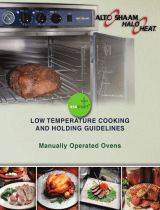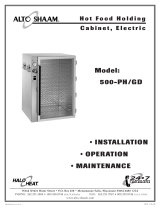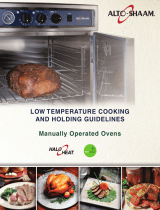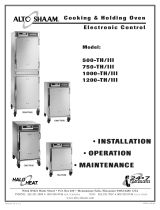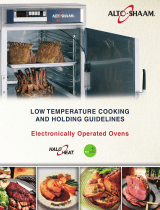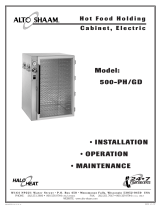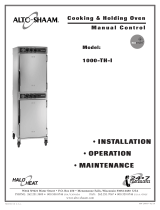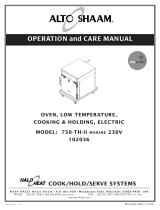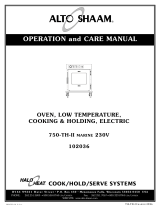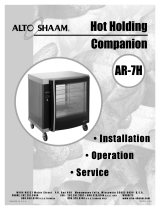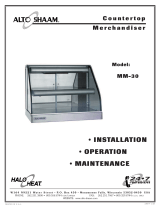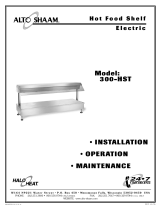S A N I T A T I O N
Food flavor and aroma are usually so closely
related that it is difficult, if not impossible, to
separate them. There is also an important,
i
nseparable relationship between cleanliness and
food flavor. Cleanliness, top operating efficiency,
and appearance of equipment contribute
considerably to savory, appetizing foods.
Good equipment that is kept clean, works
better and lasts longer.
Most food imparts its own particular aroma and
many foods also absorb existing odors.
Unfortunately, during this absorption, there is no
distinction between GOOD and BAD odors. The
majority of objectionable flavors and odors
troubling food service operations are caused by
bacteria growth. Sourness, rancidity, mustiness,
stale or other OFF flavors are usually the result of
germ activity.
The easiest way to insure full, natural food flavor is
through comprehensive cleanliness. This means
good control of both visible soil (dirt) and invisible
soil (germs). A thorough approach to sanitation
will provide essential cleanliness. It will assure an
attractive appearance of equipment, along with
maximum efficiency and utility. More importantly,
a good sanitation program provides one of the key
elements in the prevention of food-borne illnesses.
A controlled holding environment for prepared
foods is just one of the important factors involved
in the prevention of food-borne illnesses.
Temperature monitoring and control during
receiving, storage, preparation, and the service of
foods are of equal importance.
The most accurate method of measuring safe
temperatures of both hot and cold foods is by
internal product temperature. A quality
t
hermometer is an effective tool for this purpose,
and should be routinely used on all products that
require holding at a specific temperature.
A comprehensive sanitation program should focus
on the training of staff in basic sanitation
procedures. This includes personal hygiene,
proper handling of raw foods, cooking to a safe
internal product temperature, and the routine
monitoring of internal temperatures from receiving
through service.
Most food-borne illnesses can be prevented
through proper temperature control and a
comprehensive program of sanitation. Both these
factors are important to build quality service as the
foundation of customer satisfaction. Safe food
handling practices to prevent food-borne illness is
of critical importance to the health and safety of
your customers.
HACCP, an acronym for Hazard Analysis (at)
Critical Control Points, is a quality control program
of operating procedures to assure food integrity,
quality, and safety. Taking steps necessary to
augment food safety practices are both cost
effective and relatively simple. While HACCP
guidelines go far beyond the scope of this manual,
additional information is available by contacting:
CENTER FOR FOOD SAFETY AND APPLIED
NUTRITION FOOD AND DRUG ADMINISTRATION
1-888-SAFEFOOD
INTERNAL FOOD PRODUCT TEMPERATURES
HOT FOODS
DANGER ZONE 40° TO 140°F (4° TO 60°C)
CRITICAL ZONE 70° TO 120°F (21° TO 49°C)
SAFE ZONE 140° TO 165°F (60° TO 74°C)
COLD FOODS
DANGER ZONE ABOVE 40°F (ABOVE 4°C)
SAFE ZONE 36°F TO 40°F (2°C TO 4°C)
FROZEN FOODS
DANGER ZONE ABOVE 32°F (ABOVE 0°C)
CRITICAL ZONE 0° TO 32°F (-18° TO 0°C)
SAFE ZONE 0°F or below (-18°C or below)




















